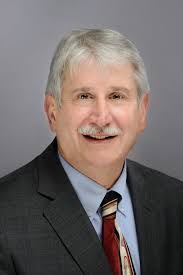For several years, I acted in community theater, and then I took up writing fiction. In my experience, there is a common thread that runs through those activities, and mediation. The mediator, as we all know, endeavors to see things through the eyes of others; an actor strives to inhabit the character he or she portrays; and the writer must do a little of both.
At the root of these efforts to see things through another’s eyes, is empathy. Merriam-Webster defines “empathy” as:
the action of understanding, being aware of, being sensitive to, and vicariously experiencing the feelings, thoughts, and experience of another of either the past or present without having the feelings, thoughts, and experience fully communicated in an objectively explicit manner; also : the capacity for this.
Psychology Today states that:
Empathy is the experience of understanding another person's thoughts, feelings, and condition from their point of view, rather than from your own. You try to imagine yourself in their place in order to understand what they are feeling or experiencing.
Wikipedia adds:
Types of empathy include cognitive empathy, emotional empathy, and somatic empathy. . . . By the age of two years, children normally begin to display the fundamental behaviors of empathy by having an emotional response that corresponds with another person's emotional state. Even earlier, at one year of age, infants have some rudiments of empathy, . . .
I can recall several specific occasions when I had an empathetic epiphany. One of those occurred when I was a newly minted attorney. I had torn my meniscus and my ACL, and was reduced to a hobble on the way from the subway to my office, and nobody in the crowds of people that flowed past and around me on the streets of Boston would make eye contact with me. I had become invisible, and I realized that my disability made others uncomfortable - and that I had been guilty of the same thing, when I encountered someone with an obvious disability.
Another occasion occurred a year before I attended law school. I was on a subway car in Tokyo, and everyone - men, women, children - was staring at me, because I was the only white person on the car, the only non-Japanese. I need not point out the significance of that experience.
I make no claim that these experiences made me a better person: perhaps they did. But the fact that they remain vivid in my memory after so many years shows that they did teach me something.
"The NPR broadcast of On Point on May 1st featured the following two guests:
Dr. David Rakel, professor and chair of the Department of Family and Community Medicine at the University of New Mexico, founder and former director of the University of Wisconsin Integrative medicine program, and author of The Compassionate Connection: The Healing Power of Empathy and Mindful Listening; and Dr. Helen Riess, co-founder and chief scientist for Empathetics, psychiatrist and medical educator at Massachusetts General Hospital and Harvard Medical School, and author of The Empathy Effect: 7 Neuroscience-Based Keys for Transforming the Way We Live, Love, Work, and Connect Across Differences."
 About the blogger:
About the blogger:
Phil Moss is a member of the State of Maine’s Panel of Mediators, and has been active in alternative dispute resolution since he first entered the legal profession. In 1975, Phil was one of fifty attorneys who volunteered to participate in the pilot mediation program for the Boston Municipal Court, and in subsequent years he volunteered as a participant in pilot mediation projects for the Maine Human Rights Commission and the Maine Superior Court system. As an advocate he participated in well over 100 arbitrations and mediations, involving the hospitality industry, trucking and warehousing, supermarkets and public utilities (including nuclear power), among others. For a number of years prior to his retirement from the active practice of law, Phil was included in New England Super Lawyers, and listed in Chambers USA, America’s Leading Business Lawyers and in The Best Lawyers in America. Phil has worked pro bono publico for a number of organizations, including the Jewish Community Center of Portland, ME, the Pine Tree Council of the Boy Scouts of America and the Maine chapter of NAMI (National Alliance on Mental Illness).

